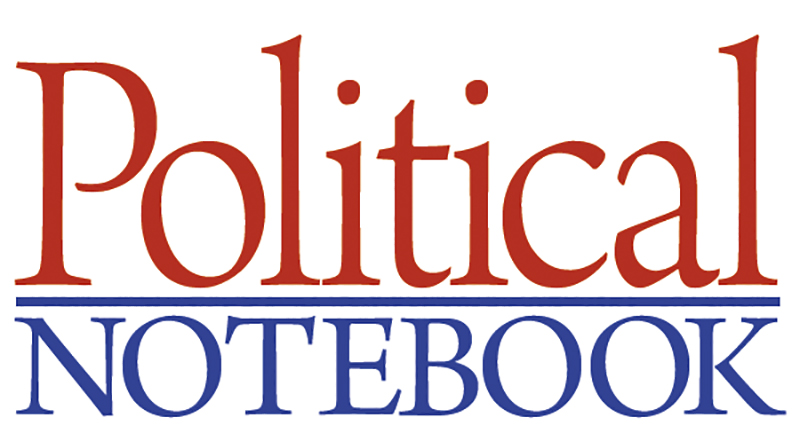Political Notebook: East Spencer resident running as write-in candidate for mayor
Published 12:10 am Friday, September 17, 2021
East Spencer resident Timothy Trogdon said last week he’s going to run for mayor as a write-in candidate for the upcoming municipal election in November.
Trogdon is challenging Mayor Barbara Mallett, who was first elected to the board in 2005 and served as the town clerk and finance officer before her election as mayor in 2011. In East Spencer, mayors serve a two-year term, while board members serve four-year terms. Incumbents Albert Smith, Dwayne Holmes and Tony Hillian are seeking re-election, with a challenge from Shawn Rush, who’s the second vice chair of the Rowan County Democratic Party. Three seats on the board are up for grabs.
Trogdon can only run as a write-in because the candidacy filing period ended on July 16. Trogdon said he’s been a resident of the town for seven years now, and “semi-retired” from the transportation industry. He currently works with the Rowan-Salisbury Schools’ Transportation Department. Trogdon is a veteran of the Air Force, Army National Guard and Army Reserves, where he served as a quality assurance specialist for a defense logistics agency.
Trogdon says issues core to his platform include utilizing a grant writer to assist the town in applying for state and federal funding, promoting better code enforcement, promoting better communications with law enforcement and residents and developing a better record-keeping system to feature the history of the town.
Trogdon has a bachelor’s degree from Wright State University in Ohio and a master’s degree from the University of Maryland system.
State Board of Elections alerts voters to expect mass mailings ahead of the 2021 municipal election
The North Carolina Board of Elections says voters should expect to see mass mailings that have been sent by a number of voter advocacy and political organizations ahead of the 2021 municipal election.
The state board said in a news release it welcomes efforts to engage voters and promote participation, but it recognizes the confusion that can arise from unsolicited mailings. Absentee by mail voting begins Oct. 1, with Oct. 26 being the final day to request an absentee ballot. Absentee by mail ballots must be returned no later than 5 p.m. on election day, which is Nov. 2.
Additionally, the deadline to register to vote in the election will be Oct. 8. Early voting will start Oct. 14 and end Oct. 30 at the Rowan County Board of Elections, located at 1935 Jake Alexander Blvd. West.
The state board says mass mailings are rarely sent by state or county boards of elections, but voters should contact the organization sending the information if they have questions or concerns. Some mailings include contact information and the ability to “unsubscribe” or opt out of receiving such information. The board also encourages voters to check the status of their registration by visiting the “registering” section at ncsbe.gov.
The board anticipates a bulk of mailings — about 400,000 — will come from private organizations Voter Participation Center and the Center for Voter Information and reach voters by Wednesday. The groups have informed the board that mailings will target unregistered young people who will be eligible to vote in the upcoming election for the first time, voters who have recently moved and not re-registered or updated their address and those who are unregistered but of voting-age population.
Gov. Cooper signs more bills into law
RALEIGH — Gov. Roy Cooper signed a handful of bills into law last week, including one sponsored by Rep. Julia Howard that allows visitors in a hospital during declared states of emergency.
Howard, a Republican representing Rowan and Davie counties, joined three other Republicans to sponsor House Bill 447, or the “Jeff Rieg Law/Patients Religious Rights.” The legislation requires hospitals to allow clergy members and other religious leaders to visit admitted patients despite disaster declarations or the use of the hospital as a temporary shelter. Visitation could be restricted if clergy members don’t pass a health screening, however.
The bill passed unanimously in the Senate, but 98-19 in the House along party lines.
Cooper also signed Senate Bill 99, which clarifies that larceny of a catalytic converter is a class one felony if the cost of replacing the part and repairing the motor vehicle is more than $1,000. A catalytic converter is a part that reduces the pollution from internal combustion engine emissions.
Cooper also signed S.B. 321, which amends the North Carolina Controlled Substances Act to reflect developments in the forensic chemistry field related to isomers in compounds.
Lastly, S.B. 542 allows the state health plan for teachers and state employees to adopt a program encouraging plan members to report instances of fraud, waste and abuse by a health care provider. The bill also clarifies standards for property finders, which are those hired for a fee by an owner to recover or assist in the recovery of said property.




